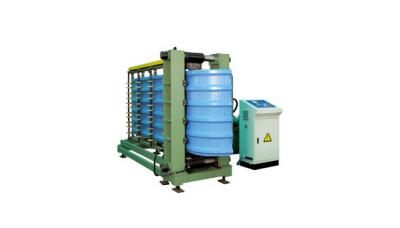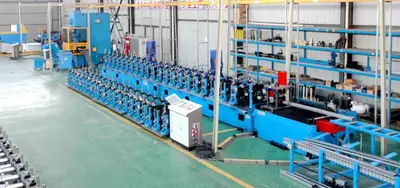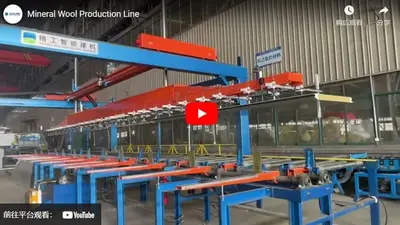Summary of the Properties of Rock Wool Production Lines
The rock wool production lines are equipment used to produce rock wool boards. Rock wool boards are fiber materials made from melted natural rock ore, possessing excellent thermal insulation and heat resistance properties. They are widely used in construction, refrigeration, decoration, and other fields. After years of research and improvement, the rock wool production lines have become sets of modern equipment with high efficiency and a high level of automation. This article will introduce the performance of rock wool boards produced by the rock wool production lines.
Rock Wool Production Lines: Thermal Insulation Performance
Rock wool boards have a low thermal conductivity, making them excellent thermal insulation materials. Rock wool boards of different thicknesses and densities play varying roles in stopping heat transfer. For example, standard rock wool boards (thickness 50 - 100mm) are commonly used in external wall insulation systems in buildings, effectively reducing heat exchange between the interior and exterior of buildings, lowering the energy consumption of air conditioning and other cooling and heating equipment, and contributing significantly to building energy conservation. In winter in cold regions, they can effectively lock the warm indoor air, preventing heat from escaping into the cold outdoors. In the hot summer, they block external high temperatures from invading the interior, maintaining a cool and comfortable indoor environment.
Thicker rock wool boards (thickness above 100mm) offer even more excellent thermal insulation performance. In places with high temperature control requirements, such as large cold storage rooms in cold regions and constant temperature and humidity laboratories, thick rock wool boards can maximally prevent heat transfer, ensuring a stable internal temperature and protecting stored items or experimental environments from external temperature fluctuations.
Rock Wool Production Lines: Fire Resistance Performance
One outstanding advantage of rock wool boards is their excellent fire resistance performance. They belong to non-combustible materials, and their fire resistance level typically reaches Grade A. In the event of a fire, the rock wool boards used in the building's external walls can effectively prevent the spread of fire, gaining precious time for personnel evacuation and firefighting. For instance, in high-rise buildings, if a fire breaks out on one floor, the rock wool board insulation layer on the external wall can form a fire barrier, preventing flames from quickly spreading to the upper floors, significantly reducing fire damage and ensuring the building's fire safety.
Rock Wool Production Lines: Sound Absorption Performance
Low-density rock wool boards (density 80 - 120kg/m³) are relatively loose and lightweight, with good sound absorption performance. In places with sound insulation and noise reduction requirements, such as theaters, conference rooms, and KTV lounges, installing low-density rock wool boards on walls or ceilings can effectively absorb and reflect sound waves, improving the acoustic environment and enhancing sound quality. In theaters, noises such as audience chatter and seat movements can be absorbed by rock wool boards, allowing the audience to enjoy the performance more clearly. In conference rooms, speakers' voices can be transmitted more clearly, avoiding echo interference and improving meeting efficiency.
Rock Wool Production Lines: Weather Resistance
Rock wool boards for building exterior walls are designed for the harsh environments of exterior walls, possessing good weather resistance. They can withstand erosion from natural factors such as ultraviolet rays, wind and rain, and freeze-thaw cycles. Whether exposed to prolonged sunlight, harsh wind and rain, or freeze-thaw cycles in cold winters, rock wool boards can maintain their stable performance, avoiding issues such as cracking, deformation, and powdering, ensuring the long-term effective operation of external wall insulation systems and extending the lifespan of buildings. In coastal areas, sea winds carry salt that corrodes buildings, but the weather resistance of rock wool boards allows them to withstand such harsh environments, providing long-lasting protection for building exterior walls.
In summary, the wide application of the rock wool production lines provides high-performance, reliable thermal insulation and heat-resistant materials for construction, refrigeration, decoration, and other fields.


 CN
CN
 EN
EN
 fr
fr  de
de  es
es  it
it  ru
ru  pt
pt  ar
ar  th
th  pl
pl  ro
ro 







 Call us on:
Call us on:  Email Us:
Email Us:  #1809, Jianhu Rd, Keqiao, Shaoxing, Zhejiang, China
#1809, Jianhu Rd, Keqiao, Shaoxing, Zhejiang, China 